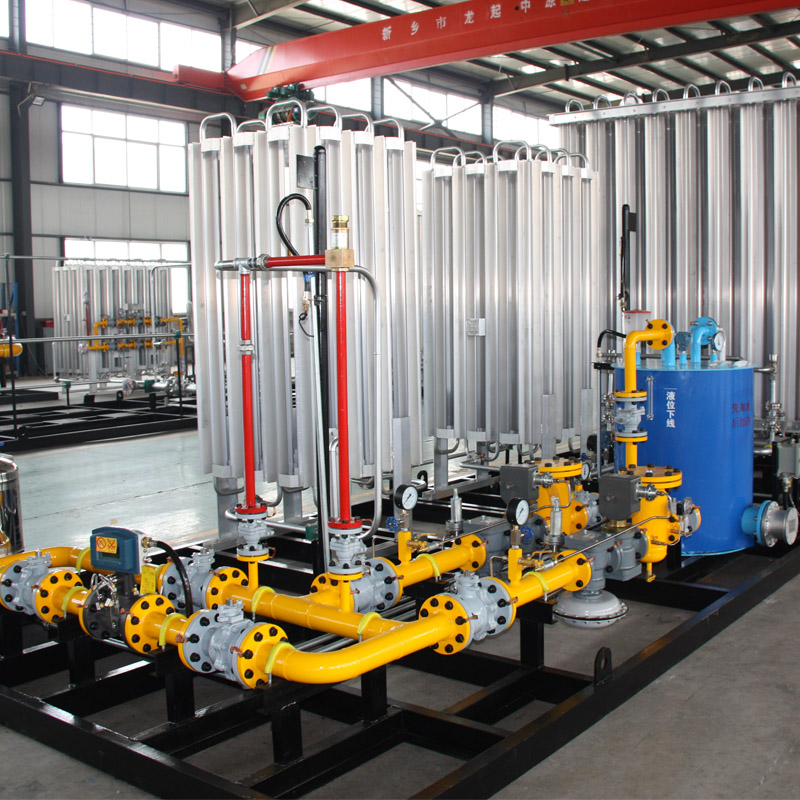
Dec . 14, 2024 01:27
Back to list
Exploring the Functionality and Applications of Pneumatic Control Valves in Automation Systems
Understanding Pneumatic Valves A Cornerstone of Automation
Pneumatic valves play a pivotal role in the field of automation, providing control and regulation in various industrial applications. Utilizing compressed air as their primary medium, these valves are essential for the operation of pneumatic systems in manufacturing, automotive, and other sectors requiring precise movement and control.
What are Pneumatic Valves?
Pneumatic valves are devices that regulate the flow of compressed air within a pneumatic system. These valves can be controlled manually or automatically, allowing them to manage pressures, flow rates, and fluid direction. They are typically designed to work with actuators such as cylinders, which convert the compressed air's energy into mechanical work. By directing airflow appropriately, pneumatic valves enable timely and efficient operation of machinery.
Types of Pneumatic Valves
There are several types of pneumatic valves, each designed for specific applications. Some of the most common types include
1. Directional Control Valves These valves manage the path that air takes within a system. They can be two-way, three-way, or four-way valves, depending on how many positions and ports they provide. For instance, a four-way valve is often used to control double-acting cylinders, allowing for forward and backward movement.
2. Pressure Control Valves These valves monitor and regulate the pressure of the air within the system. They can protect equipment from overpressure conditions by venting excess air when necessary. Pressure relief valves and pressure regulating valves fall into this category.
3. Flow Control Valves Designed to manage the speed of actuators, flow control valves regulate the flow of air into and out of pneumatic cylinders. By adjusting the orifice size, operators can control how quickly or slowly a cylinder extends or retracts.
pneumatic valve

4. Check Valves These valves ensure air flows in one direction only, preventing backflow. They are critical in maintaining pressure and efficiency within pneumatic systems.
Importance in Automation
In industrial settings, pneumatic valves are crucial for enhancing productivity and efficiency. They allow for the automation of various processes, enabling manufacturers to achieve greater precision and reliability in operations. By streamlining the movement of components on assembly lines, pneumatic systems can significantly reduce the time and effort required for manufacturing tasks.
Moreover, pneumatic valves contribute to safety in industrial applications. By incorporating pressure and flow control features, these valves can prevent dangerous situations, such as explosions or equipment damage, which could occur due to excess pressure or improper flow.
Challenges and Considerations
Despite their advantages, working with pneumatic valves requires a good understanding of their mechanics and the systems they control. Factors such as system pressure, temperature, and the type of materials used can significantly affect valve performance. Regular maintenance is essential to prevent leaks and malfunctions which could lead to inefficiencies or equipment failures.
Additionally, selecting the right valve for an application is crucial. Factors such as the desired operation speed, load requirements, and environmental conditions must be considered. Investing in high-quality pneumatic valves from reputable manufacturers can mitigate many common issues faced in pneumatic systems.
Conclusion
Pneumatic valves are indispensable components in the world of automation, ensuring precise control over air flow and pressure across various applications. By understanding the types and functions of these valves, as well as their significance in enhancing industrial safety and efficiency, operators can optimize their use in pneumatic systems. As industries continue to evolve towards greater automation, the relevance of pneumatic valves will only increase, solidifying their position as a crucial element in the operational backbone of modern manufacturing.
Next:
Latest news
-
Safety Valve Spring-Loaded Design Overpressure ProtectionNewsJul.25,2025
-
Precision Voltage Regulator AC5 Accuracy Grade PerformanceNewsJul.25,2025
-
Natural Gas Pressure Regulating Skid Industrial Pipeline ApplicationsNewsJul.25,2025
-
Natural Gas Filter Stainless Steel Mesh Element DesignNewsJul.25,2025
-
Gas Pressure Regulator Valve Direct-Acting Spring-Loaded DesignNewsJul.25,2025
-
Decompression Equipment Multi-Stage Heat Exchange System DesignNewsJul.25,2025

